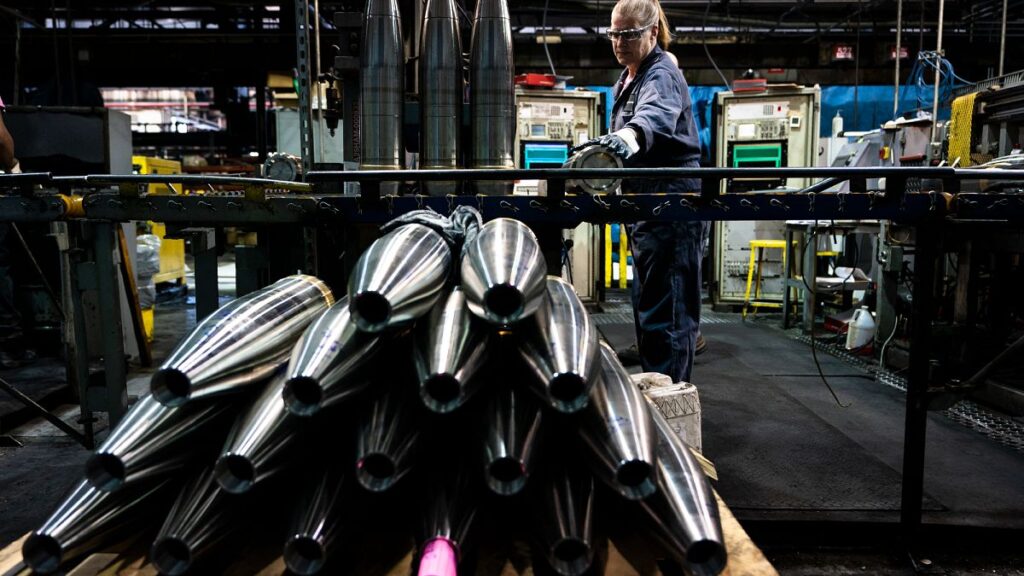Published on
The €13 billion set aside for security and defence in the EU’s current long-term budget (2021–2027) is a drop in the ocean when it comes to protecting Europe from serious threats, the bloc’s defence, security, and space industry has warned.
The next Multiannual Financial Framework (MFF) should feature dedicated investment envelopes that “match the scale of the ambition and the urgency of the challenge,” according to a position paper by the Aerospace, Security and Defence Industries Association of Europe (ASD), released on the eve of the Commission’s proposal.
Industry leaders say that means allocating around €150 billion for both defence and security across the next seven-year budget cycle, starting in 2028.
In recent months, the EU has urged member states to ramp up national defence efforts and has proposed an €800 billion plan to rearm. But so far, the pace of action has fallen short of expectations.
“Despite recent increases, Europe’s current rate of defence investment and procurement is inadequate to address the most extreme military contingencies,” the ASD warned in the paper.
With the US shifting focus to the Indo-Pacific and the threat of potential Russian aggression looming, industry figures argued that €100 billion for defence alone is “the bare minimum” needed to begin rebuilding Europe’s defence industrial base—especially after decades of underfunding that led to a €600 billion “defence deficit” during the so-called peace dividend era.
The precise breakdown of the EU’s next budget remains under wraps until Wednesday. But according to leaked documents seen by Euronews, the Commission is expected to propose a massive industrial fund that merges up to 14 existing budget lines, spanning defence, space, and technology programs.
This new instrument, the European Competitiveness Fund (ECF), is set to include the European Defence Fund, the Act in Support of Ammunition Production, IRIS², InvestEU, the European Defence Industry Programme, EU4Health, and LIFE, among others.
The ECF will also feature a European preference clause to promote sovereignty in critical areas like digital technologies, space, biotech, security, and defence.
In addition, the European Commission is weighing whether to merge its two largest budget items—the Common Agricultural Policy (CAP) and the cohesion policy—into a single programming framework. Under this umbrella, the ECF would be used to support the bloc’s growing defence and security capabilities.
The European industry has also called on EU policymakers to allocate another €40 to €60 billion for space-related projects and around €23.5 billion for civil aviation. Otherwise, chronic underinvestment in aerospace, defence and security could result in weakened capabilities, delayed critical transitions and increased dependencies, the ASD claimed.
EU Commissioner for Defence and Space Andrius Kubilius told Euronews in a recent interview that the next long-term budget should include more funding for space initiatives to reduce reliance on the U.S. and strengthen the EU’s strategic autonomy.
While he didn’t provide specific figures due to ongoing negotiations, Kubilius acknowledged that maintaining current space systems alone will cost more than the €17 billion currently allocated.
“If we do not allocate enough funding and fail to start developing these space projects, by 2035 we may find ourselves in a very unattractive situation,” he warned.
Read the full article here
